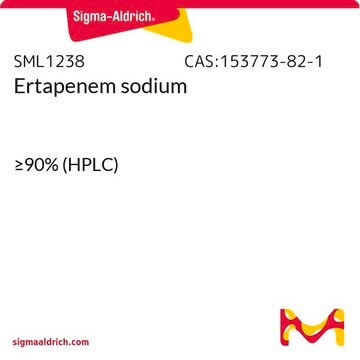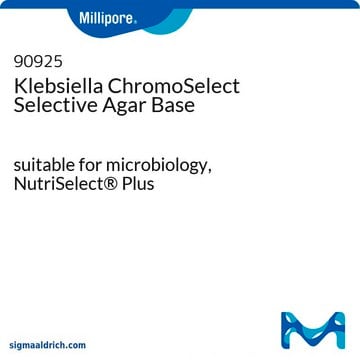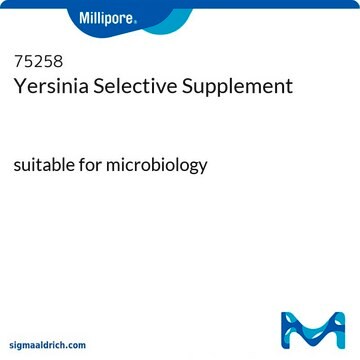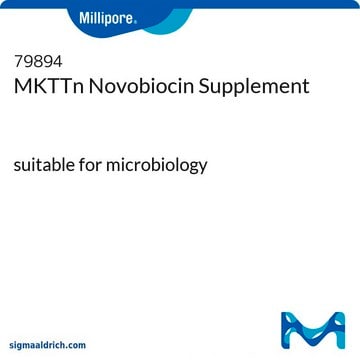C8145
Cefsulodin sodium salt hydrate
third-generation cephalosporin antibiotic
Synonym(s):
7-(D-α-Sulfophenylacetamido)ceph-3-em-3-(4′-carbamoylpyridinium)methyl-4-carboxylate sodium salt
About This Item
Recommended Products
Quality Level
form
powder or crystals
antibiotic activity spectrum
Gram-negative bacteria
Gram-positive bacteria
Mode of action
cell wall synthesis | interferes
storage temp.
2-8°C
SMILES string
[Na+].NC(=O)c1cc[n+](CC2=C(N3[C@H](SC2)[C@H](NC(=O)[C@@H](c4ccccc4)S([O-])(=O)=O)C3=O)C([O-])=O)cc1
InChI
1S/C22H20N4O8S2.Na/c23-18(27)13-6-8-25(9-7-13)10-14-11-35-21-15(20(29)26(21)16(14)22(30)31)24-19(28)17(36(32,33)34)12-4-2-1-3-5-12;/h1-9,15,17,21H,10-11H2,(H4-,23,24,27,28,30,31,32,33,34);/q;+1/p-1/t15-,17-,21-;/m1./s1
InChI key
REACMANCWHKJSM-DWBVFMGKSA-M
Related Categories
General description
Application
Biochem/physiol Actions
Other Notes
Storage Class Code
11 - Combustible Solids
WGK
WGK 3
Flash Point(F)
Not applicable
Flash Point(C)
Not applicable
Personal Protective Equipment
Certificates of Analysis (COA)
Search for Certificates of Analysis (COA) by entering the products Lot/Batch Number. Lot and Batch Numbers can be found on a product’s label following the words ‘Lot’ or ‘Batch’.
Already Own This Product?
Find documentation for the products that you have recently purchased in the Document Library.
Customers Also Viewed
Our team of scientists has experience in all areas of research including Life Science, Material Science, Chemical Synthesis, Chromatography, Analytical and many others.
Contact Technical Service











